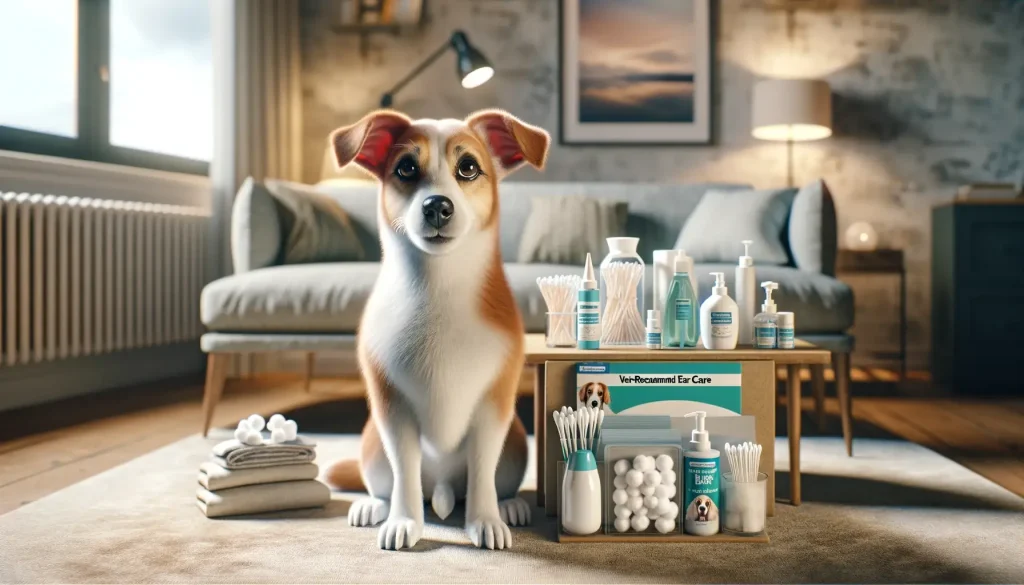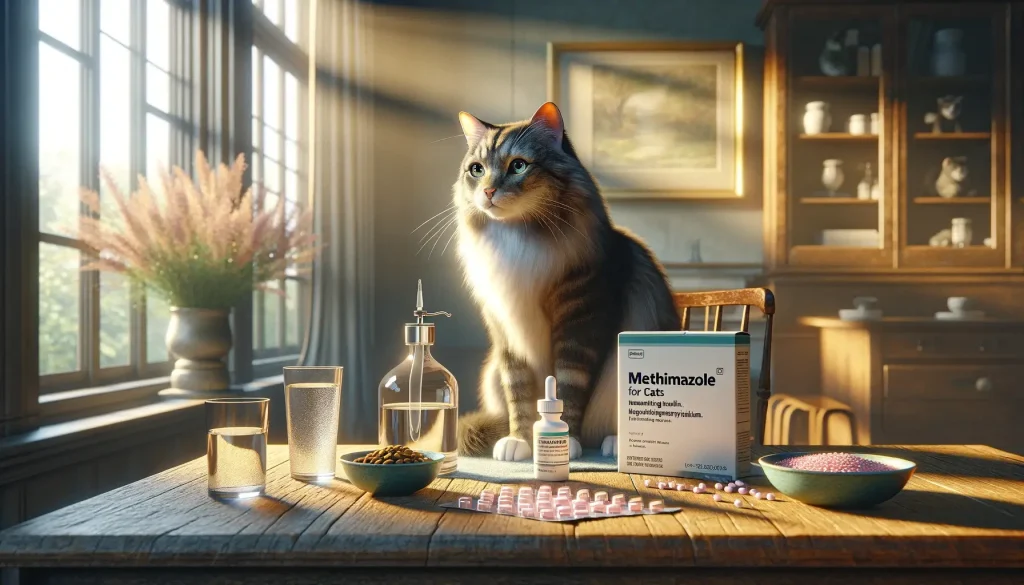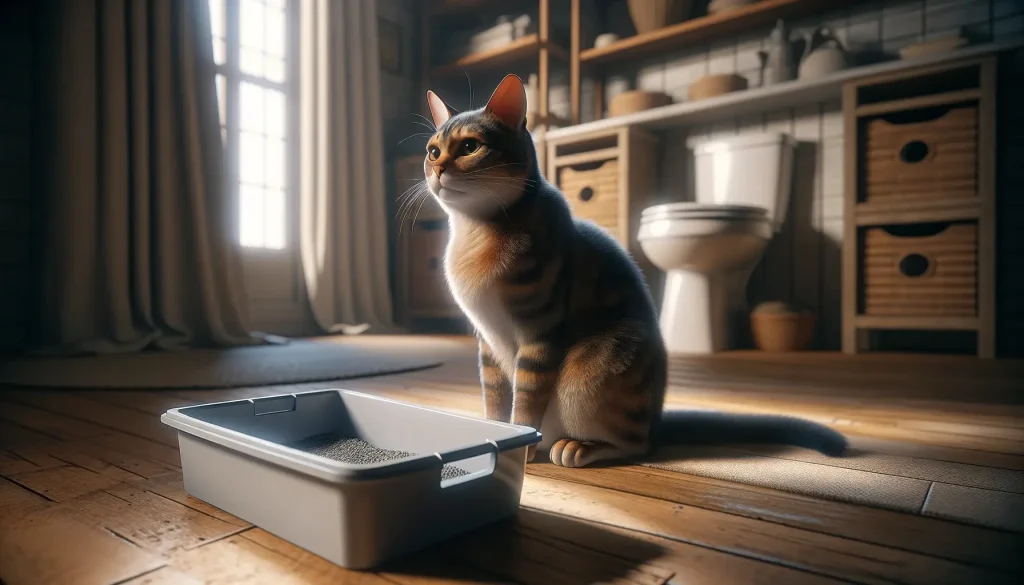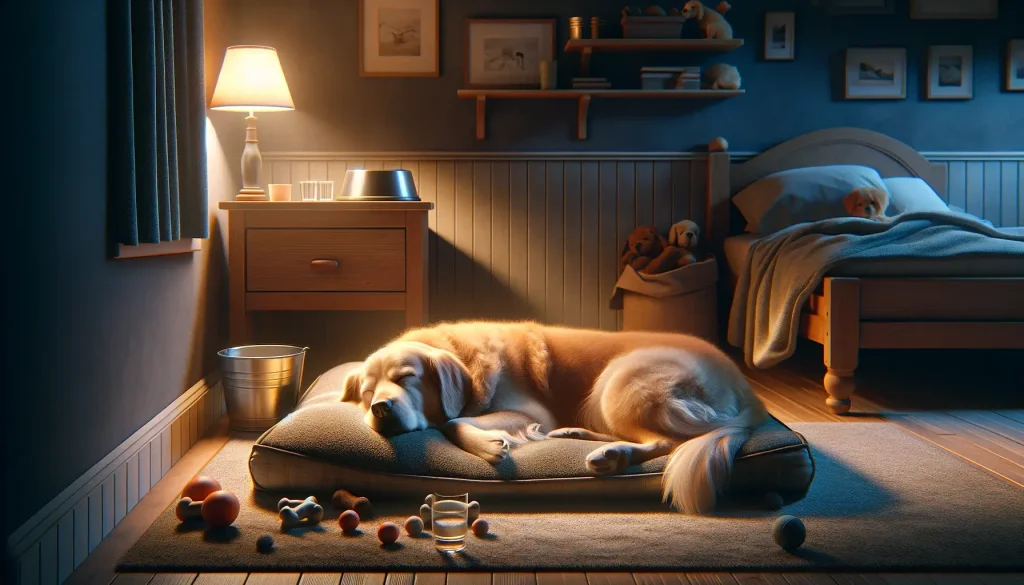
Cause and Solutions for Dog Peeing in Sleep
Imagine you’re cuddling with your furry frind, enjoying a peaceful night, and suddenly, you notice a wet patch on the bedding. It’s not just puzzling; it’s worrisome. This scenario is more common among dog owners than you might think. When dogs pee in their sleep, it’s a sign that something’s amiss, health-wise or behaviorally. As pet owners, our pets are not just animals; they’re family members. And their health and well-being are of utmost importance to us. This issue can be both stressful for the dog and concerning for the owner, leading to a search for both causes and solutions.
So, what leads a dog to urinate involuntarily during sleep? It’s a question that opens up a variety of potential causes ranging from urinary tract infections and bladder stones to more complex conditions like spinal cord diseases or hormone-imbalances. Understanding the root cause is the first step in addressing the issue. But beyond identifying the cause, finding the right solution that caters to your pet’s specific situation is crucial. It may involve veterinary interventions, lifestyle adjustments, or a combination of both.
Is there a universal solution, or does the approach vary based on the individual circumstances of each dog? Let’s delve into the causes, explore the options, and find out how to help our furry companions lead a comfortable, leak-free life.
Identifying Dog Sleep Urination Causes
Unwanted pee accidents during sleep can catch any dog owner off guard. While it might seem like a sporadic issue, it typically denotes underlying health or behavioral concerns. To tackle this problem effectively, recognizing the common causes is a vital step forward. Here, we will explore some widespread reasons behind sleep urination in dogs and set the stage for finding practical solutions.
Urinary tract infections (UTIs) are often a prime suspect. Dogs suffering from UTIs may experience a frequent urge to urinate, sometimes losing control during their sleep. Symptoms might include visibly strained urination or blood in the urine, prompting an immediate consultation with a vet.
Bladder stones can also lead to similar issues. These crystalline formations within the bladder irritate the lining, making it challenging for dogs to hold their urine throughout the night. A diagnosis may require imaging tests like X-rays or ultrasounds.
In some cases, the problem runs deeper. Spinal cord diseases or injuries affecting the nerves that control the bladder can result in involuntary urination. Similarly, hormonal imbalances, particularly in older or spayed/neutered dogs, might disrupt normal bladder control, leading to accidents during sleep.
Lastly, the concern could be behavioral. Stress, anxiety, or significant changes in the dog’s environment might trigger unusual urination patterns, including sleep-related incidents.

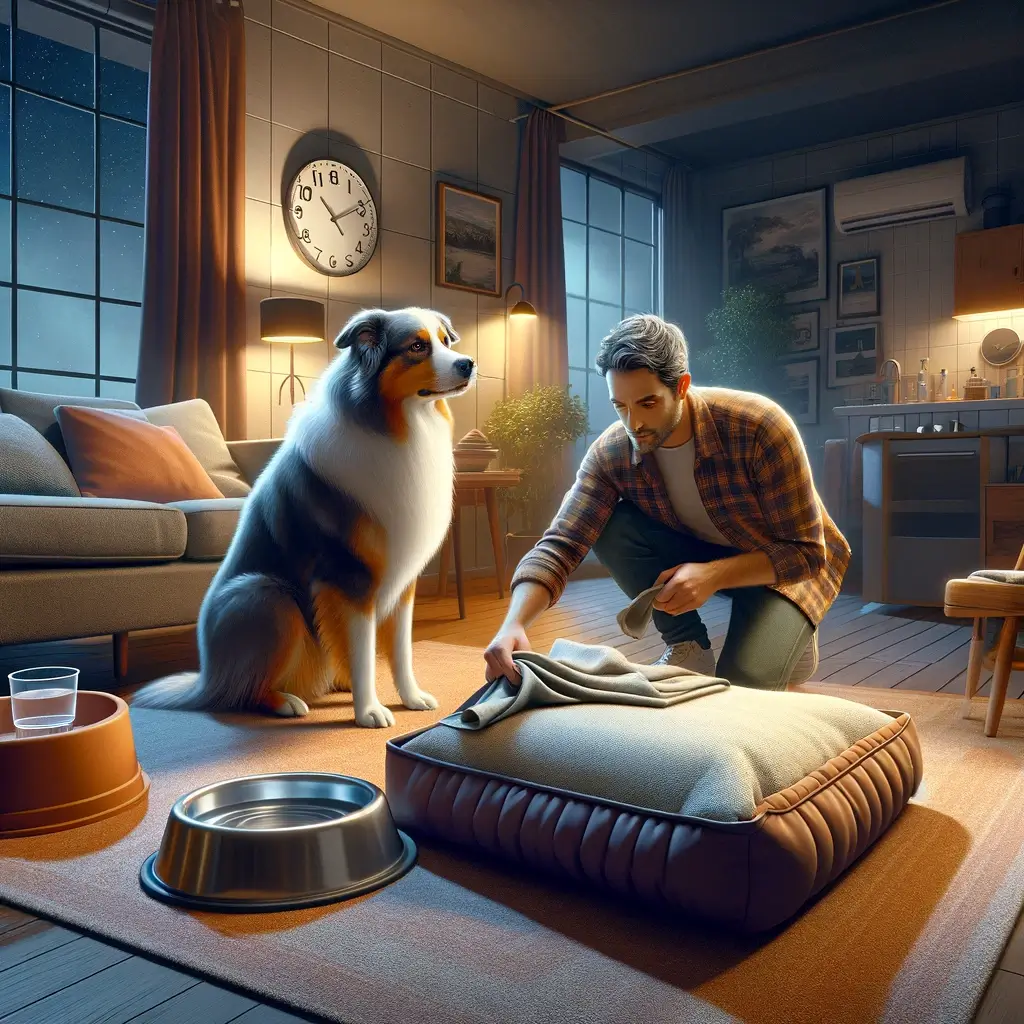
At-Home Care for Dogs with Sleep Urination
Managing your dog’s sleep urination can be challenging, but there are effective at-home care strategies that can help. Let’s explore some practical steps you can take to improve your pet’s situation and potentially reduce the frequency of these incidents.
First, regular veterinary check-ups are crucial. Even though this guide focuses on what you can do at home, ensuring your dog is healthy and monitoring any medical conditions through regular vet visits cannot be overstated.
- Adjust evening routines: Limit your dog’s water intake before bed. Make sure they go outside for one last potty break right before bedtime. This can help reduce the chances of accidents.
- Invest in a waterproof bed: Protect your dog’s bed with waterproof covers. They make clean-up easier and keep the bed dry.
- Regular bathroom breaks: Ensure your dog has ample opportunities to relieve themselves throughout the day. More frequent bathroom breaks can help prevent accidents at night.
- Promote a calming environment: Stress and anxiety can contribute to sleep urination. Create a peaceful bedtime routine and consider comfort-inducing products like calming treats or a cozy sleeping area.
- Potty-training reinforcement: Sometimes, reinforcing potty training can help. Praise and reward your dog for going outside to strengthen their understanding of where it’s appropriate to urinate.
While these tips can aid in managing your dog’s situation, they are not substitutes for professional medical advice. Conditions like urinary tract infections, bladder stones, or hormonal imbalances require veterinary intervention. If your dog frequently urinates during sleep, it’s essential to consult your vet to rule out or treat any underlying health issues.
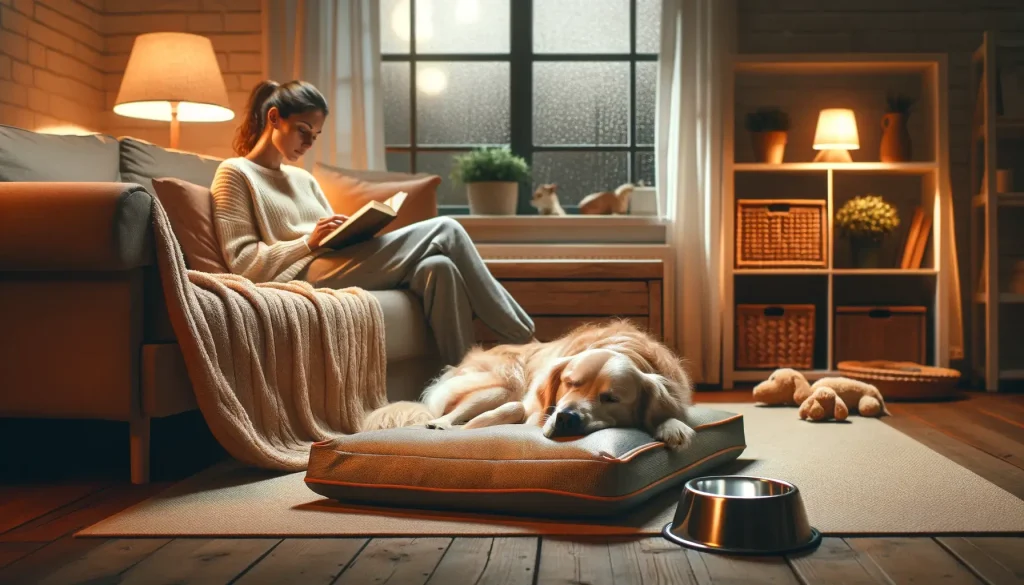
When to Visit the Vet
Dealing with your dog’s sleep urination issues is not just about managing symptoms at home. There are times when a professional’s insight is crucial. But how do you know when it’s time to make that vet appointment? Let’s pinpoint the signs that suggest a vet visit is not just beneficial but necessary.
First off, if your dog’s sleep urination is a new or sudden occurrence, it’s a clear signal to seek veterinary advice. Changes in a dog’s urinary habits can indicate health issues that need immediate attention.
- Frequent urination: If you notice your dog asking to go out more than usual or urinating more frequently, it might be time for a vet visit.
- Signs of discomfort: Whining, crying, or visible distress during urination could point to a urinary tract infection (UTI) or bladder stones.
- Blood in the urine: This is a red flag that should never be ignored. Blood in the urine can signal infections, stones, or more serious health conditions.
- Struggling to urinate: Straining to pee or producing only a trickle despite a normal intake of water could indicate a blockage or an infection.
- Behavioral changes: Uncharacteristic behavior such as irritability, lethargy, or a loss of appetite can accompany health issues related to urinary problems.
Ruling out or confirming health concerns with a vet ensures that your dog gets the right treatment. Early diagnosis and intervention can prevent more serious issues and help your dog lead a happier, healthier life. Remember, your dog relies on you to make health-related decisions, so staying vigilant about changes and responding quickly when issues arise is key.

Protecting Your Dog from Sleep Urination
Taking proactive steps can significantly reduce the chances of sleep urination issues in dogs. Prevention is always better than cure, and here, we discuss measures to safeguard your pet’s health and ensure their sleeping habits remain undisturbed. Combining these strategies with the aforementioned tips can create a comprehensive care plan for your furry friend.
- Maintain a healthy diet: A well-balanced diet supports overall health and can prevent issues like bladder stones. Consult your vet for advice on the best food for your dog’s specific needs.
- Regular exercise: Keeping your dog active helps maintain a healthy weight, reducing the risk of diseases that can lead to incontinence.
- Timely vet visits for early detection: Routine check-ups can catch potential health problems before they become severe. Early detection of urinary tract infections or hormonal imbalances can prevent sleep urination issues.
- Monitor water intake: Ensure your dog has access to fresh water throughout the day but monitor consumption. Overdrinking before bedtime can lead to accidents.
- Manage stress and anxiety: A calm dog is less likely to have sleep disturbances. Use toys, positive reinforcement, and a consistent routine to foster a sense of security.
Prevention not only addresses the immediate concern of sleep urination but also contributes to your dog’s long-term health and well-being. Implementing these strategies requires effort, but the reward of a happy, healthy pet is well worth it. As always, for specific concerns or persistent issues, consulting with your veterinarian is crucial. They can provide guidance tailored to your dog’s unique health profile.
Beginner Guide to Raising Quail at Home
What are the Signs of a Dog Concussion?
What Causes Your Dog’s Ears to Smell Bad?
When your dog’s ears start to emit an unpleasant odor, it might leave you puzzled…
Methimazole Treatment for Cat Hyperthyroidism
Methimazole plays a crucial role in managing feline hyperthyroidism, a condition marked by an overactive…
Got Hummingbirds in your Backyard? Here’s How to Care for Them.
Why Does Your Cat Pee Outside the Litter Box?
Cat’s Litter Box Issues It’s not uncommon for cat owners to face the frustrating dilemma…


